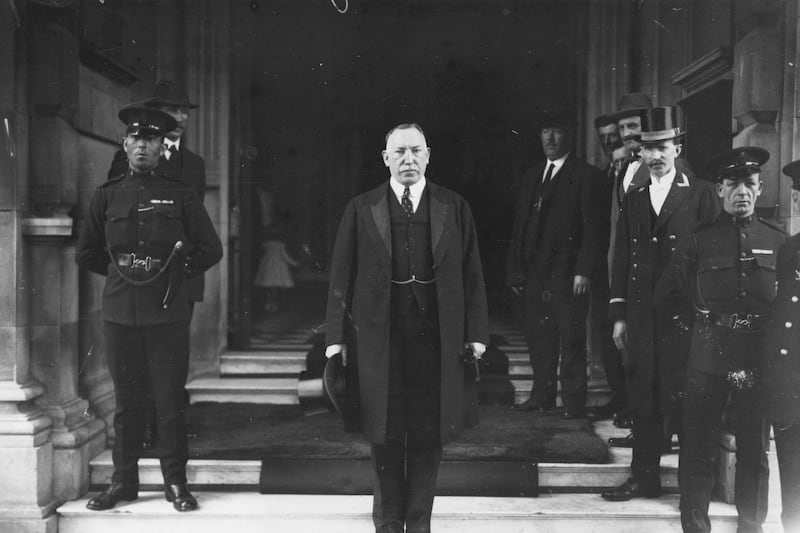September 20 1924
The British Parliament passed an Act entitled the “Government of Ireland Act” in 1920. It was introduced and passed against the will and protests of all the people of Ireland.
Lord Carson (then Sir Edward and an MP) proclaimed day after day that he and his friends had not asked for it, did not want it, and would not vote for it.
Irish nationalist opinion about the precious Act was expressed in the speeches delivered at Westminster by Mr [Joseph] Devlin and Mr TP O’Connor during that parliamentary session.
Five-sixths of Ireland rejected it; the spokesmen of the remaining one-sixth bewailed the fact that it was “forced upon them”.
That is the Act referred to by Lord Sydenham as “a Treaty”. A Treaty comes from negotiations leading to a definite understanding embodied in an agreed form of words. What relation exists between an Act of the British parliament forced upon Ireland, or any part of Ireland, by a careless or ignorant majority of British MPs and contract voluntarily signed by the accredited representatives of two peoples?
As well describe the Perpetual Coercion Act of 1867 as a Treaty. The signatories to a Treaty pledge themselves to the fulfilment of its provisions while it endures as an instrument. If one party to the contract breaks faith, the other is released from its bond. That is the Law of Nations.
Viscount Grey, following the example set by lesser apostles of misrepresentation, spoke at Edinburgh on Thursday of “the pledge made to Ulster”.
When, under what circumstances, and in what terms was a “pledge made to Ulster” that the Partition Act of 1920 would be held as sacred as the ancient Ark of the Covenant?
It is not in the Act – not a suggestion of it. If the British-made legislation passed four years ago was to be unalterable “without the consent of Ulster”, a clause of three lines would have given effect to that intention.
Perhaps Mr Lloyd George wrote, or said, something to Sir E Carson about finality in 1920; the accusation has not been definitely made against him – yet.
Mr Lloyd George and Lord Birkenhead have recently been swallowing assertions of theirs that might fairly have been regarded as pledges when uttered while the ink was still fresh on the document they had signed on December 6 1921 [the Treaty].







